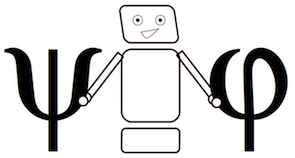From Human-Human Joint Action
to Human-Robot Joint Action
and vice-versa !
April 4-5, 2016 - Toulouse, France
|
|
|
SpeakersAll speakers in alphabetical order with short bio:
Rachid ALAMI - LAAS-CNRS - Toulouse, France 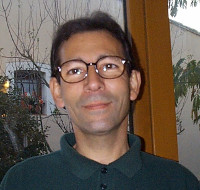 Dr. Rachid Alami is Senior Scientist at CNRS. He received an engineer diploma in computer science in 1978 from ENSEEIHT, a Ph.D in Robotics in 1983 from Institut National Polytechnique and an Habilitation HDR in 1996 from Paul Sabatier University He contributed and took important responsibilities in several national, European and international research and/or collaborative projects (EUREKA: FAMOS , AMR and I-ARES projects, ESPRIT: MARTHA, PROMotion, ECLA, IST: COMETS, IST FP6 projects COGNIRON, URUS, PHRIENDS, and FP7 projects CHRIS, SAPHARI, ARCAS, SPENCER France: ARA, VAP-RISP for planetary rovers, PROMIP , ANR projects). His main research contributions fall in the fields of Robot Decisional and Control Architectures, Task and motion planning, multi-robot cooperation, and human-robot interaction. Rachid Alami is currently the head of the Robotics and InteractionS group at LAAS.
Malinda CARPENTER - School of Psychology and Neuroscience at the University of St Andrews - St Andrews, Scotland 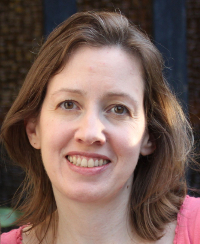 Malinda Carpenter is a Professor of Developmental Psychology in the School of Psychology and Neuroscience at the University of St Andrews in Scotland. She received her Ph.D. from Emory University in the U.S. Since 1999, she has been working in the Department of Developmental and Comparative Psychology at the Max Planck Institute for Evolutionary Anthropology in Leipzig, Germany (she is currently on research leave there before moving to Scotland in the summer of 2017). She studies social cognition, social-affiliative motivations, and social behavior, mainly in typically-developing infants and young children, but also in apes (and, in the past, children with autism). Her research interests include participation in shared activities (joint attention, joint action), social functions of imitation, prosocial and affiliative behavior, preverbal communication, and relations with in-group versus out-group members.
Mohamed CHETOUANI - ISIR - Paris, France 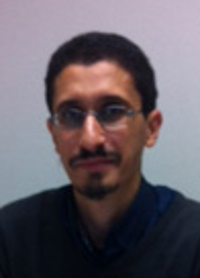 Mohamed Chetouani is the head of the IMI2S (Interaction, Multimodal Integration and Social Signal) research group at the Institute for Intelligent Systems and Robotics (CNRS UMR 7222), University Pierre and Marie Curie-Paris 6. He received the M.S. degree in Robotics and Intelligent Systems from the UPMC, Paris, 2001. He received the PhD degree in Speech Signal Processing from the same university in 2004. In 2005, he was an invited Visiting Research Fellow at the Department of Computer Science and Mathematics of the University of Stirling (UK). Prof. Chetouani was also an invited researcher at the Signal Processing Group of Escola Universitaria Politecnica de Mataro, Barcelona (Spain). He is currently a Full Professor in Signal Processing, Pattern Recognition and Machine Learning at the UPMC. His research activities, performed at the Institute for Intelligent Systems and Robotics, cover the areas of social signal processing and personal robotics through non-linear signal processing, feature extraction, pattern classification and machine learning. He is also the co-chairman of the French Working Group on Human-Robots/Systems Interaction (GDR Robotique CNRS) and a Deputy Coordinator of the Topic Group on Natural Interaction with Social Robots (euRobotics). He is the Deputy Director of the Laboratory of Excellence SMART Human/Machine/Human Interactions In The Digital Society.
Yiannis DEMIRIS - Personal Robotics Laboratory, Imperial College - London, UK 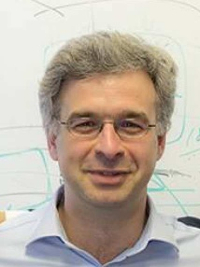 Yiannis Demiris is a Reader (Associate Professor) at Imperial College London where he heads the Personal Robotics Laboratory . His research interests include assistive robotics, human-robot joint action, cognitive and developmental robotics, multi-robot systems, and applications of intelligent robotics in healthcare. His research is funded by the EU FP7 and H2020 programs through projects WYSIWYD and PAL, both addressing novel machine learning approaches to human-robot interaction. He received the Rectors Award for Teaching Excellence and the Faculty of Engineering Award for Excellence in Engineering Education in 2012. He is a Fellow of the Royal Statistical Society (FRSS), the British Computer Society (FBCS) and the Institute of Engineering and Technology (FIET).
Peter DOMINEY - Robot Cognition Laboratory, INSERM - Lyon, France  Peter Ford Dominey is a CNRS Research Director at the INSERM SBRI in Lyon France. He studied cognitive psychology and artificial intelligence for the BA at Cornell University, and computational neuroscience for the M.Sc. and Ph.D. in computer science at the University of Southern California. He was a software engineer at the Data General Corporation and a Systems Engineer at NASA/JPL/CalTech. His research interests include understanding and simulating the neurophysiology of cognitive sequence processing, action and language, and their application to robot cognition and language processing, and human-robot cooperation. Over the last decade , he has developed models of grammatical construction processing and shared cooperative plans in the context of human-robot cooperation. He is currently particularly interested in the narrative construction of meaning.
Kerstin FISCHER - South Denmark University - Sonderborg, Denmark 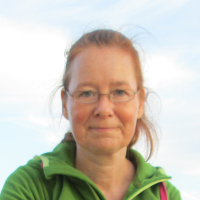 Kerstin Fischer is a professor (MSO) for Language and Technology Interaction at the University of Southern Denmark. She received her PhD in English Linguistics from Bielefeld University in 1998, after which she did postdoctoral work at the University of Hamburg on emotion in human-computer interaction. She was the assistant professor in Bremen 2000-2006 and associate professor for English Linguistics at the University of Southern Denmark 2007-2015. Her research focuses on the verbal interaction between humans and robots, her most important concern being how interaction succeeds, what mechanisms and processes are involved, what robot behaviors human users easily adapt to, what behaviors robots should be endowed with and how human-like these behaviors have to be.
Raul HAKLI - University of Helsinki - Helsinki, Finland 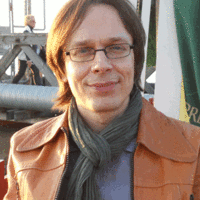 Raul Hakli is a postdoctoral researcher at the Department of Political and Economic Studies, University of Helsinki, Finland. He is interested in philosophy of social robotics, philosophy of social science, social ontology and collective intentionality.
Guenther KNOBLICH - Central European University - Budapest, Hungary 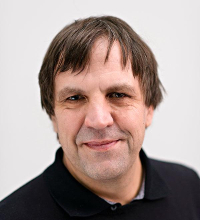 Günther received his PhD in Cognitive Science from Hamburg University in 1997. After a one-year stay at the University of Illinois at Chicago , he became a research scientist at the Max Planck Institute for Psychological Research in Wolfgang Prinz’s group in Munich. From 2004 to 2007 he was Associate Professor of Cognitive Psychology at Rutgers University (US). Between 2007 and 2011 he held Chairs for Social Neuroscience and Cognitive Psychology at the Psychology Department of Birmingham University (UK) and the Donders Centre for Cognition at Radboud University Nijmegen (NL). His diverse research interests include social perception, joint action, motor control, experience of agency, and problem-solving.
Tamara LORENZ - University of Cincinnati - Cincinnati, USA 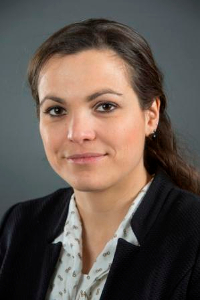 Tamara Lorenz is an Assistant Professor at the University of Cincinnati. She is jointly affiliated with the Department ofPsychology, the Department of Electrical Engineering and Computation Science and the Department of Mechanical and Materials Engineering. Tamara Lorenz received her diploma (Dipl.-Ing.) in mechanical engineering from Technische Universität München in 2008 and her Ph.D. from the Graduate School of Systemic Neurosciences at Ludwig-Maximilians University (LMU) in Munich, Germany in 2015. During her Ph.D. she was affiliated with both the General and Experimental Psychology Department at LMU and the Institute of Information-Oriented Control at Technische Universität München. Her major research interests are the dynamics of human interaction and their relevance and usability for Human–Robot Interaction (HRI). Therefore, she explores movement synchronization, adaptation , and behavior during the human joint action and during the interaction with robots in order to create models for safe and acceptable HRI. Besides, Tamara Lorenz is also interested in exploring human-machine interaction in general and with applications to human factors in daily life and work surroundings.
Elisabeth PACHERIE - Ecole Nationale Supérieure - Paris, France 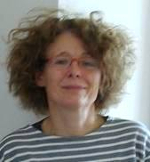 Elisabeth Pacherie is a senior researcher in philosophy, leader of the Agency team at Institut Jean Nicod ( ENS, EHESS, CNRS, Paris). Her main interests are in the philosophy of mind and action. Her research mostly focuses on the relationship between intentions and action, on the cognitive underpinnings of individual and collective action and the sense of agency.
Giovanni PEZZULO - Institute of Cognitive Sciences and Technologies - Roma, Italy 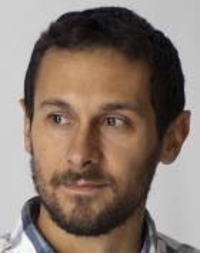 Giovanni Pezzulo is a researcher at the National Research Council of Italy, Institute of Cognitive Sciences and Technologies (ISTC-CNR), in Rome. He uses a combination of theoretical, computational and empirical methods to study cognitive processing in humans and other animals, and to realize robots that have similar abilities. At the moment his main research question is how living organisms (and possibly robots) could develop higher cognition from sensorimotor skills. His tentative answer --in keeping with embodied and motor theories of cognition-- is that the architecture of motor prediction and control of our earlier ancestors was gradually improved to afford cognitive control and executive functions - and in parallel, joint action and communication in the social domain.
Alessandro SAFFIOTTI - Cognitive Robotic Systems Laboratory - Örebro, Sweden 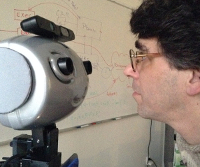 Alessandro Saffiotti is a full professor of Computer Science at the University of Orebro, Sweden, where he heads the AASS Cognitive Robotic Systems laboratory. He holds a MSc in Computer Science from the University of Pisa, Italy, and a PhD in Applied Science from the Universite Libre de Bruxelles, Belgium. His research interests encompass artificial intelligence, autonomous robotics, and technology for elderly people. He is the inventor of the notion of "Ecology of physically embedded intelligent systems", a new approach to include robotic technologies in everyday life, which has been applied in several projects. He is the initiator of several current international initiatives on combining AI and Robotics, including the "Lucia" series of workshops and Winter schools on AI and Robotics, started in 2012. He is the coordinator of the euRobotics topic group on "AI and Cognition in Robotics". He has published more than 180 papers in international journals and conferences, and organized a large number of international events. He has been involved in many EU projects, in several EU networks, and in many national projects. He is on the editorial board of Artificial Intelligence and of the Int Journal on Social Robotics. He is a member of AAAI, a senior member of IEEE, and an ECCAI fellow.
Natalie SEBANZ - Central European University - Budapest, Hungary  Natalie studied psychology and psycholinguistics in Innsbruck, Austria, and then joined the Max Planck Institute for Psychological Research in Munich in 2001. Having received her PhD from LMU Munich in 2004 she spent the following years working as a post-doc and later as an Assistant Professor at Rutgers University, NJ, and as a lecturer at the University of Birmingham, UK. In 2008, Natalie was appointed as an Associate Professor at the Donders Centre for Cognition, Radboud University Nijmegen, and started a five year project on the "Cognitive and Neural Mechanisms of Joint Action" (funded by a EURYI grant from the European Science Foundation). She is interested in how perception, action, and cognition contribute to social interaction in humans and other animals.
Cordula VESPER - Central European University - Budapest, Hungary 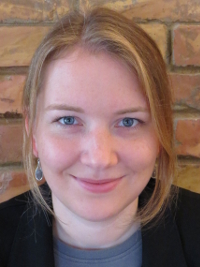 Dr. Cordula Vesper is a Postdoctoral Research Fellow at the Department of Cognitive Science at Central European University (Budapest, Hungary). Her research interests focus on temporal and spatial aspects of joint action coordination which she investigates using movement tracking, EEG, reaction time and variability analyses . She obtained her PhD at the Donders Institute for Brain, Cognition , and Behaviour at Radboud University Nijmegen (The Netherlands) in 2013 and studied Cognitive Science (University of Osnabrück, Germany) and Neuro-cognitive Psychology (Ludwig-Maximilians-University, Munich, Germany). Since 2014, she is also a young fellow of the Center for Interdisciplinary Research in Bielefeld, Germany. |
